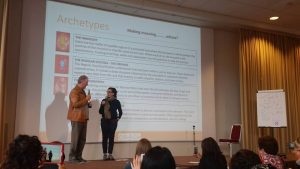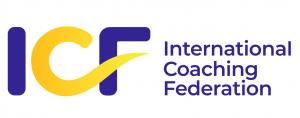Being the best associate you can be

Having recently run a workshop on how ICF competences overlap with management and leadership competences and are therefore just as applicable for an in-house coach as an external one, I suddenly realized that they are also applicable to those wanting to be a great associate (a person who works as a self-employed resource for another business).
The over-riding message is one of collaboration, partnership and integrity. For purposes of this article the customer is the employing organization (yes they are your customer) and the client is the recipient of the service being provided.
Great associates need organizational and communication skills, interpersonal and literacy skills. Like the God Janus, they need to be able to look both ways at the same time; focus on customer and on client. You may be doing associate work whilst you build your own business (keep it separate and not at the expense of your customer). You may be a professional associate, hate selling and business management and passionate about delivery – even more reason to do it well.
It is all too easy to work on the direct relationship with the client and this causes distrust and unrest. Your customer has valued your knowledge and expertise and taken the risk to employ you to work with their clients. You too need to value that trust and reciprocate. Your customer is also your project manager and any queries or concerns should be referred back, not resolved without communication. Regular updates should be exchanged and all deadlines completed on time. You need to look after your customer’s business as that is the goose laying your golden eggs. You may be an associate to more than one customer – if so you need to have clear agreements with each and be transparent about what you are doing and for whom. Where are the boundaries?
So in order to help – the ICF competences are translated in this context, allowing you to be role model for the coaching profession and to use one set of competences across your work.

A. SETTING THE FOUNDATION
Meeting Ethical Guidelines and Professional Standards – this is where you need to wear several hats. You need to be true to your profession, the ethical guidelines and code of practice and how to apply them in the course of your work being careful not to misrepresent yourself or agree to work which is outside your sphere of competence. You also need to be true to your customer’s brand – representing them and not yourself, selling on business for them and not yourself, and ensure you behave and deliver work in a way that supports their brand identity, referring back work which for any reason is not compatible with your competence, beliefs and values and way of working. The only addresses and contact details you should share with clients are those of your customer – being an associate is not the way to build your network, database and own business.
Standards also include care of materials and resources. What is to be shared, loaned or returned. Who is the owner – customer or client?
Establishing the Agreement – you need to clearly understand what is required in the assignment, how it is developed and evaluated and confirm your business relationship and specific parameters with your customer as well as the procedures and processes with the client.
You need to agree with both customer and client what is appropriate in the relationship and what is not, what is and is not being offered, and the alignment between the customer’s and client’s responsibilities as well as your own. Check whether there is an effective match between your beliefs, values and competences with those of the customer and the client.
B. CO-CREATING THE RELATIONSHIP 
Establishing Trust and Intimacy with the Customer – they are trusting you to represent their business. Are you able to partner with them to do that, without marketing your own business, arranging to do work on the side or selling in competing organisations? Do you have the ability to collaborate to create a safe, supportive environment that produces ongoing mutual respect and trust.
Having established the relationship with the customer, you need to work with the client (on the customer’s behalf) and demonstrate genuine concern for the welfare and future of the client or his/her organisation. Can you continuously demonstrate personal integrity, honesty and sincerity, establish clear agreements and keep promises? Are you able to demonstrate respect for client’s perceptions, learning styles and wellbeing and all on behalf of your customer? If not, then ask yourself whether you should be accepting associate work.
Are you able to create and build relationships on behalf of your customer, be honest with yourself, reflect on your work and be open to new learning? Do you use humour effectively and professionally? Are you flexible and can you be professional – managing your state and emotions, keeping personal issues to yourself and maintaining a business relationship.
Are you able to accept and solicit feedback and keep your judgements out of the relationships?
COMMUNICATING EFFECTIVELY
How able are you to focus on the needs and desires of your customer and to support their brand in the context of serving the clients? Are you able to attend to your customer’s agenda rather than your own agenda for the client. Can you faithfully deliver your customer’s materials, ethos etc without changing it ‘because you think you know better’? Are you able to have ‘professional reviews’ with both customer and client without becoming defensive?
How much back ground work are you willing to do e.g. client preparation by reading their website and finding out how your work fits into their personal or organisational strategy? How good are you at fact finding and asking questions that help the client move forward? Can you generate future work or interest in future work for your customer?
How well do you comply with relevant legislation and manage diversity – using language appropriate and respectful to the customer and client (e.g., non-sexist, non-racist, non-technical, non-jargon)?
D. FACILITATING LEARNING AND RESULTS
Do you have the ability to integrate and accurately evaluate multiple sources of information, and to make interpretations that help the client to gain awareness and thereby achieve agreed-upon results? Can you go beyond what your customer shares and add value to their perceptions of the client situation? Are you able to work with the client to identify underlying concerns, typical and fixed ways of perceiving their world, differences between the facts and the interpretation?
Can you share insights and facilitate new learning that results in new business for your customer?
How do you celebrate success with your customer?
The associate needs to be able to stick to the delivery plan with the client, to make urgent changes and justify them to the customer, otherwise discuss all changes with the customer as soon as they occur. You need to have the ability to hold attention on what is important for the customer, and to leave responsibility with the customer to take action whilst moving the client towards their stated outcomes.
At the end of the day your customer puts trust at the top of his/her agenda. This is followed by; reliability, professionalism, delivering the right thing in the right place at the right time in the right way, feedback and evaluation, more work for the customer and then a choice of more work for you.
Partnership is key, along with a great work ethic, positive attitude, independence (no spoon-feeding), keeping up with professional development, honing your practical skills, and not letting your “soft skills” like “personal qualities, habits, attitudes and social graces” fall by the wayside.





